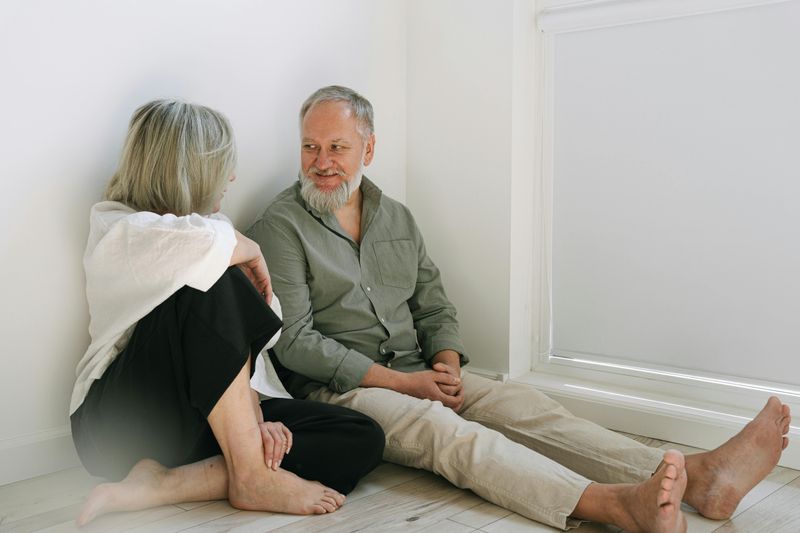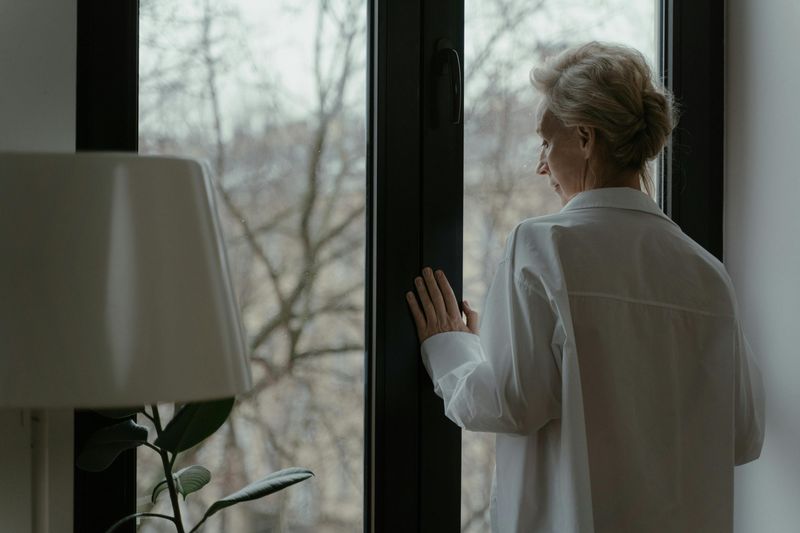13 Subtle Signs a Wife Has Checked Out of the Marriage

Marriage is often likened to a dance, where both partners move in sync to enjoy the rhythm of life together. But what happens when one partner begins to step away from the dance floor? Sometimes, a wife’s emotional withdrawal from a marriage doesn’t come with loud arguments or dramatic exits. Instead, it manifests in the quiet, subtle signals that might be easy to overlook. Understanding these signs can be crucial to addressing underlying issues and rekindling the connection. Here are 13 subtle signs that may indicate a wife has emotionally checked out of the marriage, even if everything seems outwardly fine.
1. Conversations Become Surface-Level

Conversations once filled with enthusiasm and depth now seem mundane and routine. Where laughter and shared dreams once flourished, there now lies a focus on daily chores and schedules. The absence of engaging discussions about life or shared dreams can leave a noticeable void.
She may not realize how these surface-level interactions are affecting her partner, but the shift is palpable. Something as small as not sharing a funny story can point to the emotional distance between them. It’s a subtle sign, but one that signals a significant change in the marriage dynamics, making it important to address.
2. She Stops Arguing

In the past, disagreements might have led to heated discussions, followed by resolutions. Now, silence reigns where once there was fiery passion. Her lack of interest in arguing could be a sign of emotional exhaustion or a sense of futility.
When she stops fighting for change, it might feel peaceful, but it often indicates she’s given up on improving things. This silence can be more telling than words, suggesting a deeper disengagement. Understanding the reasons behind her silence can pave the way for rekindling the affection, showing that the relationship is still worth fighting for.
3. Physical Affection Fades

Where once there were tender hugs and gentle kisses, now there’s an absence of touch. Physical affection, a language all its own, can become scarce, leaving a coldness in its place.
Even the smallest gestures, like a brush of the hand or a playful nudge, may have vanished. This lack of physical connection might suggest emotional withdrawal. It can be a poignant reminder of the fading intimacy in the relationship. Recognizing this change is vital for reigniting the warmth and closeness that once existed, bringing the couple back to a place of mutual affection.
4. She Withdraws Emotionally

Her emotional world, once shared openly, now retreats into solitude. The shared excitement and shared sorrows become her own secret garden, unvisited by her partner.
This emotional withdrawal signals a shift from openness to guardedness, creating invisible walls. When she no longer shares her day or her feelings, it can leave her partner feeling isolated and confused. Understanding this barrier is crucial in reaching out and reconnecting, fostering an environment where vulnerability and intimacy can flourish once again, strengthening the bonds of marriage.
5. She Seems Happier Away From You

When she’s with friends or coworkers, her laughter is genuine, her demeanor relaxed. Away from the marriage, she becomes a different version of herself, one that seems fulfilled and content.
This visible shift in joy might signal a deeper discontent within the marital relationship. Observing this contrast can be a wake-up call to understand what’s missing in the shared life. It’s an invitation to explore new ways to bring happiness and light back into the marriage, ensuring that joy is a shared experience once more.
6. Intimacy Feels Forced or Nonexistent

Intimacy, once natural and spontaneous, now feels mechanical or absent. The warmth and closeness that defined the relationship have given way to a chill.
Physical closeness may become a rare occurrence, and emotional intimacy may wane. These changes can leave both partners feeling disconnected and alone, further widening the emotional gap. Recognizing this discomfort can be the first step in bridging the distance. By rekindling the intimacy, the couple can find their way back to each other, reigniting the spark that once burned brightly between them.
7. She No Longer Seeks Your Opinion

Her decisions, once a collaborative process, now unfold without consultation. From significant life choices to everyday decisions, your input no longer plays a role.
This cessation of seeking advice can convey a message of detachment. It might suggest that she feels independent or disconnected from the partnership. The absence of shared decision-making leaves a void where unity once thrived. Recognizing this shift can lead to open discussions about inclusion and collaboration, fostering a renewed sense of teamwork and partnership in the marriage.
8. She Prioritizes Everything Else

Her calendar, once filled with shared activities, now brims with work, hobbies, and social commitments. You’re rarely a part of her schedule.
This shift in priorities can speak volumes about the state of the relationship. It might indicate that other areas of life have taken precedence over the marriage. Understanding this prioritization can be key in finding ways to reconnect and share in each other’s lives. By re-establishing joint activities, the couple can rediscover the joy of shared experiences, bringing back the balance and connection that once existed.
9. She Doesn’t Try to Reconnect After Conflict

Conflicts, once resolved with care and connection, now linger without reconciliation. The distance grows, where once there was an effort to bridge the gap.
Her willingness to let conflicts fester might suggest a deeper disengagement from the relationship. Without the desire to mend or reconnect, the emotional chasm can widen, leaving both partners feeling isolated. Recognizing this pattern is crucial in addressing the underlying issues, fostering a culture of open communication and healing, and ensuring that conflicts lead to growth, rather than distance.
10. She Avoids Talking About the Future Together

Plans, once involving both partners, now feature just one. The future, once a shared vision, becomes a solitary dream filled with “I” instead of “we.”
This avoidance of future planning can indicate a shift in her commitment to the marriage. It might reflect uncertainty or disinterest in a shared future. By recognizing this change, the couple can engage in meaningful conversations about their aspirations, finding common goals, and reigniting their shared dreams. This exploration of future possibilities can help strengthen the bonds of partnership and rekindle excitement for the journey ahead.
11. She Checks Out During Time Together

Togetherness, once vibrant and engaging, now feels lonely as she drifts into her own world. Her focus shifts to her phone or distant thoughts, leaving her partner feeling alone.
This disengagement during shared time can signal a broader emotional withdrawal. It may indicate that the connection once cherished has faded. Recognizing this behavior allows for conversations about presence and attention, fostering a renewed commitment to being truly present with each other. By embracing mindfulness and intentional engagement, the couple can rebuild the connection and enjoy each other’s company once more.
12. Complaints Are Replaced With Indifference

Once vocal about her concerns, now she remains silent. The absence of complaints, replaced by indifference, can speak volumes about her emotional state.
Indifference often wounds more than words. It suggests a resignation or lack of care that can be more telling than criticism. Understanding this shift from frustration to apathy can lead to healing conversations that address underlying issues. By engaging in open dialogue, the couple can rediscover empathy and understanding, reigniting the care and concern that once defined their relationship.
13. You Feel Like a Roommate, Not a Partner

Once partners in life, now mere cohabitants bound by logistics. The relationship, characterized by shared responsibilities, now lacks the spark of companionship.
The shift from partner to roommate can be subtle yet profound. It suggests a loss of emotional connection and shared purpose. Recognizing this transformation can be the first step in rekindling the partnership. By exploring new ways to connect and share, the couple can find their way back to each other, rediscovering the joy and warmth of a true partnership, beyond the mere logistics of life.

Comments
Loading…